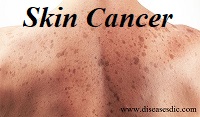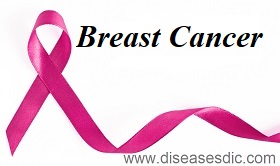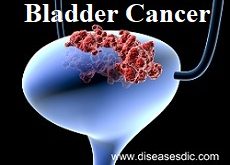Definition Skin cancer is a common and locally destructive cancerous (malignant) growth of the skin. It originates from the cells that line up along the membrane that separates the superficial layer of skin from the deeper layers. Unlike cutaneous malignant melanoma, the vast majority of these sorts of skin cancers …
Read More »Bulimia Nervosa – Symptoms, Diagnosis, and Treatment.
Introduction Bulimia nervosa is a serious eating disorder characterized by frequent episodes of binge eating followed by extreme efforts to avoid gaining weight, often by vomiting or exercising to excess. This repetitious binge-and-purge cycle can cause damage to your digestive system and create chemical imbalances in the body that harm …
Read More »Breast Cancer – Causes, Symptoms, and Prevention.
Introduction Breast cancer is characterized by the uncontrolled growth of abnormal cells in the milk producing glands of the breast or in the passages (ducts) that deliver milk to the nipples. It can begin in the ducts or lobules of the breast. Tumors in the breast tend to grow slowly. …
Read More »Obstructive Sleep Apnoea – Causes, Symptoms, and Prevention.
Definition Obstructive Sleep Apnoea (OSA) is a sleep related respiratory condition, leading to repeated temporary cessations of breathing because of a narrowing or closure of the upper airway during sleep. Core symptoms of OSA include excessive daytime sleepiness, snoring, and witnessed apnoea or hypopnoea (blockages or partial blockages of the …
Read More »Bladder Cancer – Causes, Symptoms, and Medications.
Introduction Bladder cancer begins when healthy cells in the bladder lining, most commonly urothelial cells, change and grow out of control, forming a mass called a tumor. A tumor can be cancerous or benign. A cancerous tumor is malignant, meaning it can grow and spread to other parts of the …
Read More »Stomach Ulcer – Symptoms, Treatment, and Prevention.
Definition Stomach ulcer, which are also known as gastric ulcers, are painful sores in the stomach lining. Stomach ulcers are a type of peptic ulcer disease. Peptic ulcers are any ulcers that affect both the stomach and small intestines. Stomach ulcers occur when the thick layer of mucus that …
Read More »Strep Throat – Casues, Symptoms, Treatment, and Prevention.
Definition Strep throat or streptococcal pharyngitis is a bacterial infection that causes inflammation and pain in the throat. This common condition is caused by group A Streptococcus bacteria. It can affect children and adults of all ages. However, it’s especially common in children between the ages of 5 and 15. …
Read More »Bipolar Disorder – Definition, Risk Factors and Treatment.
Definition Bipolar disorder is a condition that features extreme shifts in mood and fluctuations in energy and activity levels that can make day-to-day living difficult. Previously known as manic depression, it is a serious mental illness that, if left untreated, can destroy relationships, undermine career prospects, and seriously affect academic …
Read More » Diseases Treatments Dictionary This is complete solution to read all diseases treatments Which covers Prevention, Causes, Symptoms, Medical Terms, Drugs, Prescription, Natural Remedies with cures and Treatments. Most of the common diseases were listed in names, split with categories.
Diseases Treatments Dictionary This is complete solution to read all diseases treatments Which covers Prevention, Causes, Symptoms, Medical Terms, Drugs, Prescription, Natural Remedies with cures and Treatments. Most of the common diseases were listed in names, split with categories.








